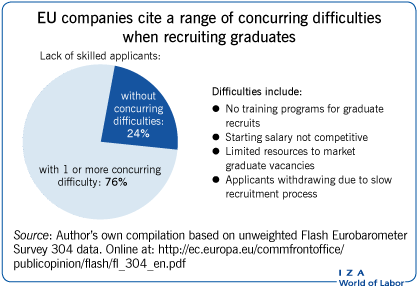Elevator pitch
Organizational characteristics and management styles vary dramatically both across and within sectors, which leads to huge variation in job design and complexity. Complex jobs pose a challenge for management and workers; an incentive structure aimed at unlocking workers’ potential can effectively address this challenge. However, the heterogeneity of job complexity and the inherent difficulty in devising a correct set of incentives may result in misalignment between job demands and incentivized behaviors, and in complaints by employers about the lack of skilled workers.

Key findings
Pros
Effective skill utilization requires complex and challenging jobs.
Organizations have a large amount of leeway in how to combine tasks to form jobs.
Skills are found in people; organizations need to offer the right incentives to unlock workers’ potential.
Skills can be built on the job, and workplaces are great learning environments.
Job complexity has a motivational component that can be used to induce workers to apply and develop their skills.
Cons
Complex jobs pose challenges for management.
Organizations that adopt non-standardized technologies will likely encounter difficulties attracting appropriately skilled applicants.
Finding the right incentives to effectively motivate workers to use and develop their skills can be difficult, and mistakes can have very high costs for organizations.
Human resource policies may not deliver the intended results due to misalignment between human resource departments and line managers.
Job complexity strains workers’ cognitive and emotional resources; without adequate resources, workers may be at risk of stress-induced burnout and display counterproductive work behavior.